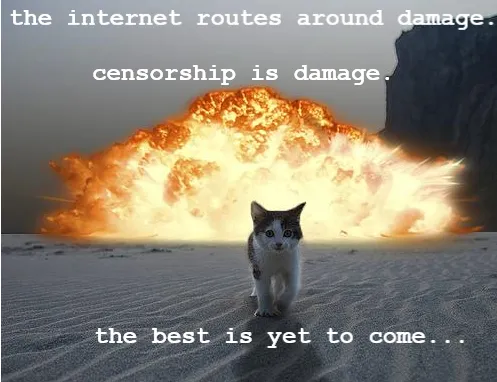Translation of a column of el gato malo. Original article is in English, subscription advised. In this striking parable with explanation, all kinds of things are discussed that you can put one-on-one on the situation in the Netherlands. Only the aerosols are not explicitly mentioned.
And also a look at the future of Science. The government should facilitate crowd-sourcing instead of putting together committees with static knowledge and then censor who wants to supplement or correct that knowledge.
What kung fu theatre can teach us about Public Health
A long time ago I was a wrestler. I was pretty good, won a few tournaments, captained a high school team, etc. Nothing earth-shattering, but not bad either. Later I picked up Muay Thai (Thai kickboxing). This was in the 90s, long before it was trendy and when gyms were still dirty, hard, fighters-only bases. Nobody came for thai-bo. You came because you full contact wanted to learn how to fight.
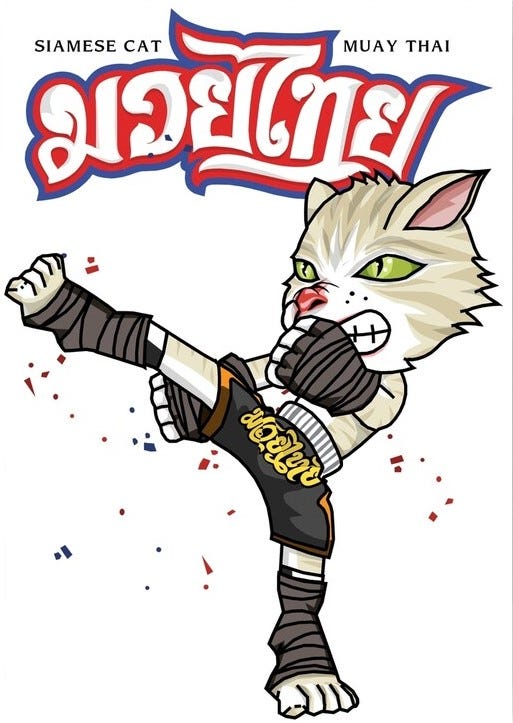
I was a pretty talented amateur with nice results in the ring against other pretty talented amateurs, but I had no hope of ever climbing to the next level. If you had offered me to fight a professional, I would have said "no way". My head would have been ripped off – and I knew that damn well.
Something like that is not a close call. You just knew how "expert" you were. You knew it because you had fought and you had nowhere to hide during training, sparring or especially: in the ring with other people who also aspired to become fighters.
Everyone had plans. Everyone got a slap on the nose. This way you found out whether and if so to what extent your plan had a chance of survival in reality.
If you didn't know if you were better than someone else, there was a simple way to find out.
There were also other arts. The exalted Shaolin mystics, karate kiddos, and taekwondozers all looked terribly beautiful with their flying kicks and air blasts and wudan wisdom. Goodness, I immediately did it in my pants for them. Their exclusive mystique made for superior marketing. But it was a bad product, as it soon turned out. Many so-called "fighting experts" were absolute wimps and you could dismantle many a "black belt" without a drop of sweat.
None of them wanted to fight us. (Well, maybe with me, but not with the fiercely scary guys I trained with.) They didn't dare to enter our ring. Their masters and sifus were nowhere to be seen and carefully stayed out of sight of our instructors as soon as something resembling a fighting day approached. This allowed their delusions to continue.
A flying triple lotus kick can amaze the crowd, but what about on a "defending against a trained opponent day?" Then that's quite disappointing.
But if you've never tried it, how could you know?
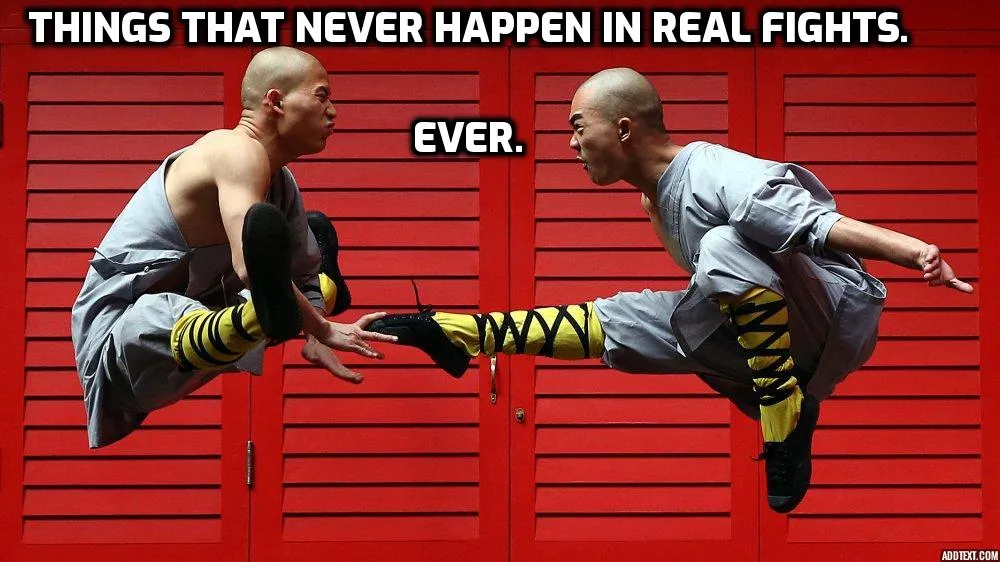
Our teachers and coaches came from Thailand. They called all these claims and flashy fights'woo-woo'.
For example "If you try that woo-woo in the ring, you're dead."
And they were right.
We saw it when the bravest tried it or when we picked up a student from some dragon academy. And that's why it was so important for them to be able to deny that our ring existed and was valid. Thus, the mystique of the "get your black belt in TKD in 18 months" McDojo factories was preserved, with their disciples interacting only in controlled, contrived conditions where it was safe.
The most astonishing thing was that many of those who did show up on a day of combat were absolutely certain that they would dominate.
None succeeded.
For a long time, this myth persisted. "I know karate!" remained a terrifying statement. Then something funny happened: the truth started to come loose. MMA emerged and picked up all the techniques that worked from kickboxing and MT to jiujitsu, wrestling, and whatever else looked useful. So don't dance around and look impressive. Just apply all fighting styles.
It was easy for me to see that coming: it was things I had done myself. I had some experience, some kind of basic knowledge.
And MMA wiped the floor with woo-woo.
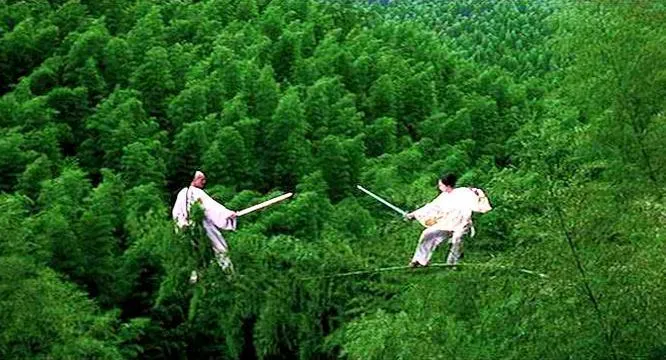
What people forget is that initially there was a great hope that the masters of woo-woo would come and silence these newcomers. Some saffron monk from the secret valley whose name might not be pronounced would float in and clean up the house. Instead, anyone who tried it was gutted. And very, very quickly, these disciples found all kinds of reasons to stay on their mountain tops.
The mismatch was far too obvious and nothing solves the mystique of the lifelong woo-woo practitioner when he is knocked out in 30 seconds by a 3rd year boxer from a good school.
The true power of woo-woo is that you no longer dare to challenge.
And much more than you think works like this in our world.
Because woo-woo is absolutely everywhere.
That's exactly what made gato-buddy's question jordan schachtel So wonderfully striking:
"Yup! UFC1 (Ultimate Fighting Championship) exposed the entire American martial arts industry as a club of mcdojos. I wonder if there is a similar awakening in other fields today."
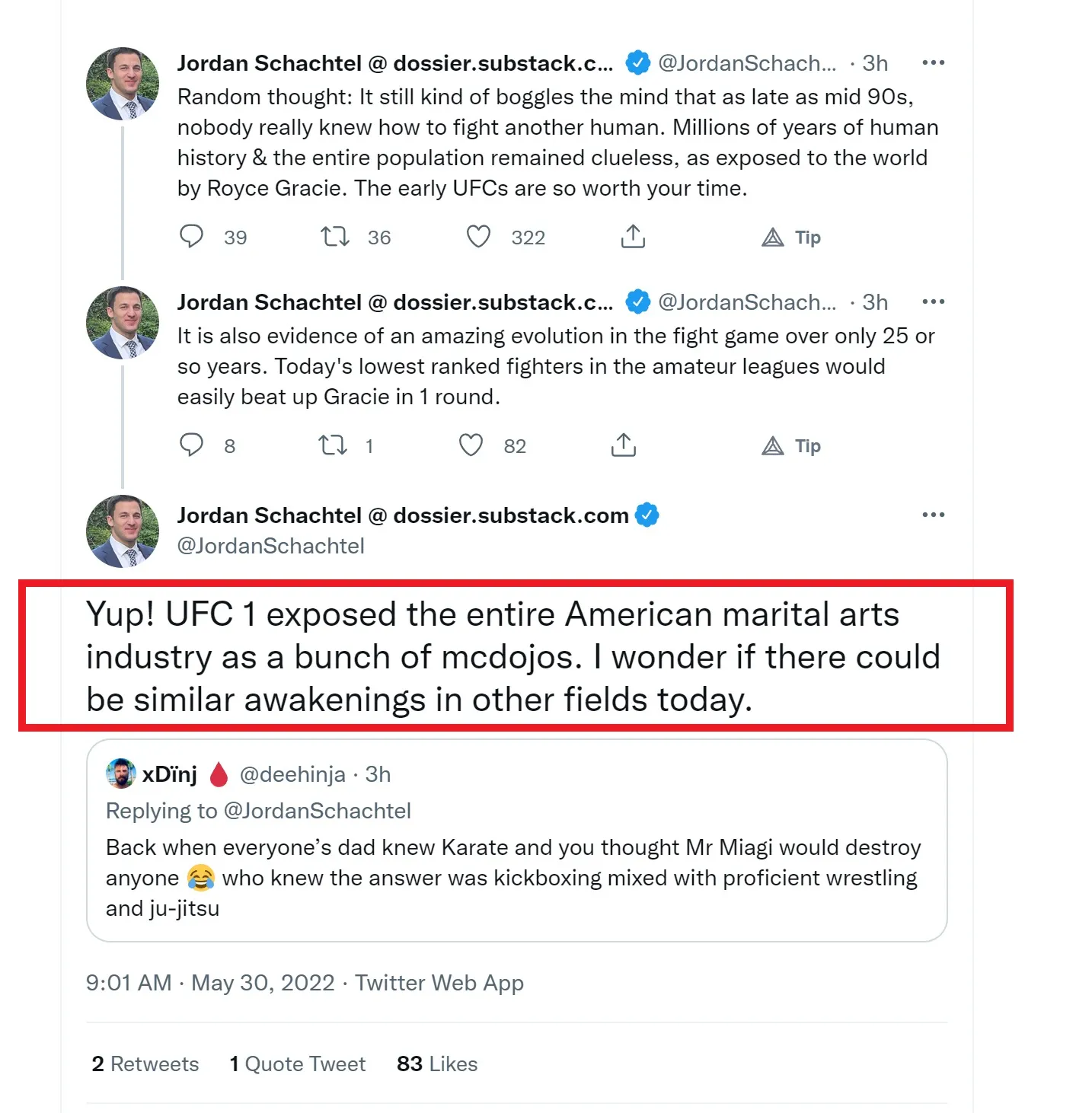
Could anyone think of another field like this?
Oh wait a minute: you mean like the public health frauds of nonsense credential factories that have to compete in real-time with people who really master science, data, and statistics?
Over the past 2 years, I have seen many alleged blackbelts and sifus devoured by "newbies".
It looked like this:
I'm not going to mince words here: almost the entire public health policy branch is woo-woo.
These alleged epidemiologists, modelers, and academics were a bunch of con artists who spread hocus pocus from the mountaintop temples. And they have learned nothing. They had misunderstood in March 2020 and 2 years later they were still wrong.
It's all woo-woo and fear-mongering.
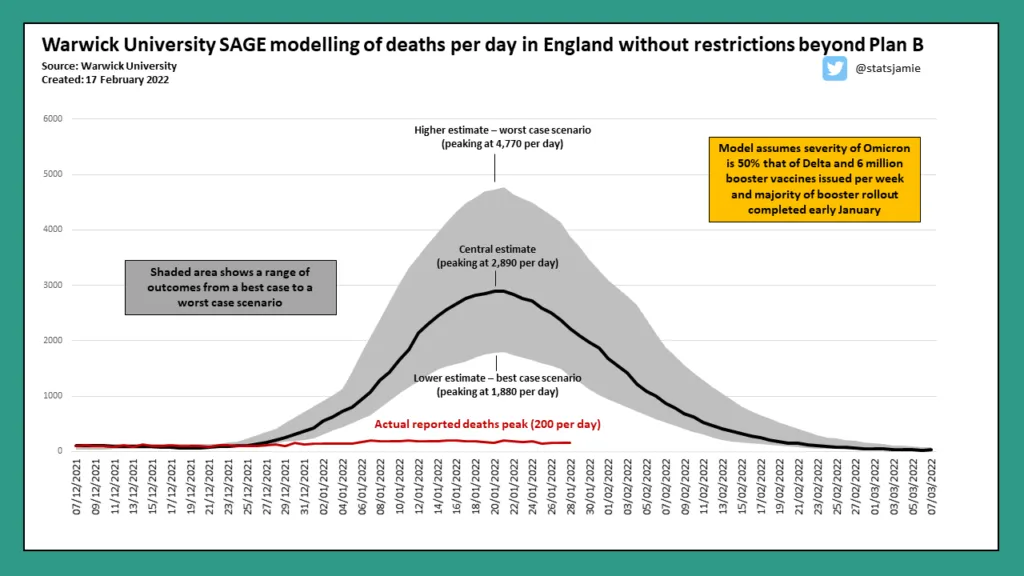
Their track record stinks. This field has been a laughing stock for a long time with a few bright spots that generally remained far removed from public policy, of which this ecosystem of mysticism was hardly a part.
From SAGE to the CDC, the UW to the NIH, [U.S. health agencies] it was complete and totally woo-woo. Not only did their models fail, they were so bad that they were non-deterministic and couldn't even replicate their own results.
They rode in on large white woo-woo horses, laden with credentials, and made bold claims about their ability and foresight. They really had no idea that they were certainly not top world champions-stone-cold-legendary killers. They had never been outside before. It was 15 years of puppy training in preparation for the gold medal round in Olympic boxing.
Total misses on swine flu, Zika, dengue and "Ebola is coming to America" were largely ignored.
They had no idea that they were actually mind-boggling, embarrassingly bad at this.
And all of a sudden, they were in the big leagues and were eliminated in the first round in front of everyone because they didn't know any better than to jump into a ring they weren't qualified for. All their predictions were wrong, their recommendations incorrect and unsubstantiated. It was just jumping around and throwing some jargon and mathematicalism around as if that implied that you knew how to fight a disease.
And we saw this kung fu theater go down in real time.
Most amusing was what it brought about in those who knew how to fight. One look and this fraud was clear. They were 7-year-olds screaming "hee-yah" and tripping over their feet.
Many (probably most) of us involved in this debate had no epidemiological background. Honestly, that's probably why we could see the problem. Once you knew exactly how a small part of the big problem worked, you could immediately tell that the "experts" were doing that little bit wrong.
So you grabbed the thread that caught your eye and you started pulling it. And it soon became clear that this was not as complicated or obscure as was made out to be. It was just jargon and authority, used to intimidate people and impress those who weren't familiar with what science should look like (unfortunately, most of the public).
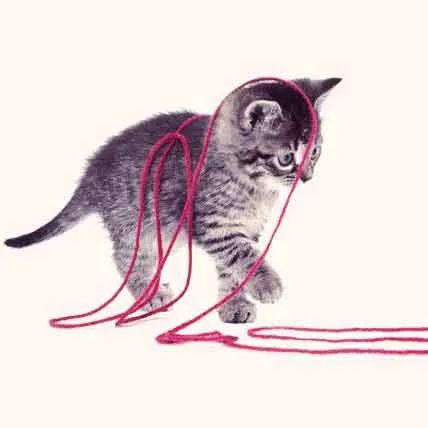
But if you had an understanding of biology, drug or vaccine design, statistics, data transfer, and/or inferential and deductive reasoning, you could quickly catch up and surpass the mendacious monastic orders of public health. And so people came from all corners of finance, academia, physics, chemistry and the life sciences. Actuaries walked like bulldozers over PhD students in epidemiology. People who built trading algorithms or research apps looked at contagion models and laughed out loud for a week.
The battle against the experts was embarrassingly unfair.
The "experts" were raised on woo-woo. They had never been in a real ring with real techniques and real people who came from worlds where you had to be right, had no tenure, and where no one cared about your credentials or your shiny job title. Or with people who were out to get a grant to lead your research and build a career. No, they wanted to know if you could bring order to data, make meaningful predictions and substantiate your claims in an open debate.
The first clashes were telling.
I was amazed time and time again when I came into contact with people who ran departments of universities and government agencies, and discovered that they had no basic knowledge of statistics and often also of science. Many had barely read the works of their own branch of science or did so so selectively that it came down to the same thing.
And the wizards of woo-woo did what they always do: as soon as they saw that they were being outdone, they did not try to overcome the opposition in the arena, but to keep others out of the arena, to intimidate them with credentials, to dismiss them with ad hominems and appeals to authority, and thus even to prevent their own class from speaking and publishing. Go against the teachings of the great woo-woo and you will never get any more money, a term of office or a mandate.
Do not trust anyone whom we have not anointed as trustworthy.
It is circular. Only those who provide credentials can be trusted, as you can only trust those with credentials.
This is basically how you recognize woo-woo.
Look for groups that validate their ability with credentials that they have provided themselves.
If you're really that good, get in the ring. Put your ideas, your data, and your process forward, make everything accessible. Let's fight over it and see what hypotheses emerge as validated.
Good fighters want to be tested. Those who only talk don't.
This is true in every area of human endeavor.
En as an indicator, it is almost foolproof.
In 2019, I was really unaware of what a sham public health largely is. I had never seen them step into the Octagon before. By mid-2020, it was already so obvious that no one with real data, statistical or scientific skills could miss it.

It cost Team Reality 3 months to go from "never looked at before" to par with the public health specialists and another 3 months later it had surpassed that discipline.
It was amazing to see biophysicist Michael Levitt demonstrate to an entire industry how to model epidemics. It took him a few months to make models that performed much better than any other I saw. Apparently, in his field, they don't just hand out Nobel Prizes for having a winning smile.
It was a pleasure to follow how hilarious woo-woo such as "the hammer and dance" was taken in a stranglehold by people who could recognize the "dancing around with a lot of noise".
I built a number of models by hand in Excel using Google mobility data that showed beyond a shadow of a doubt that lockdowns do not bend the curves and that all the "efficacy" was really just existing immunity from previous SARS-like viruses.
Meanwhile, the public health "experts" couldn't even figure out that the data pointed to seasonal effects [and aerosols] and embarrassed themselves by claiming Peru as a great example of lockdowns that worked. Just before it underwent the worst covid surge in the world a few minutes later.
The "experts" have had a VERY bad 2 years. Their credentials and their lazy appeal to authority did not hold up in the arena. And then they didn't want to talk to us at all anymore and used swear words like 'denier' and took positions like 'science is settled'.
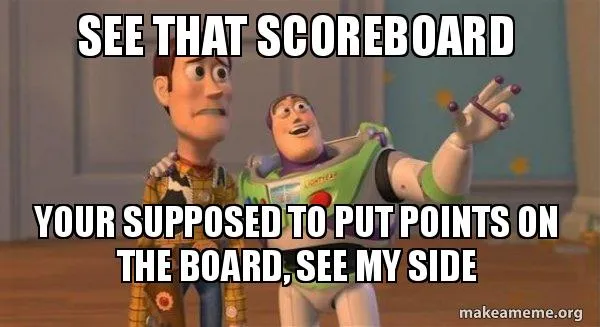
We think again about
You don't think it's ONLY this discipline of "authorities and experts" that is so rotten and unfit for battle, do you? Because that is not the case. It's not even one of the worst.
And the incentive to exclude the uninitiated from the debate will only increase. This is going to be the fight of our time, the rearguard action of ivory towers trying to maintain undeserved status and privileges as "the keepers of science" so that technocracy remains in power.
"I don't talk to you because you don't understand" is a weak subterfuge from those who are repeatedly and systematically wrong.
The world is full of people who are very good at things. Good at seeing patterns, good at handling data, good at assessing evidence and drawing conclusions. That world is now strongly networked. And that segment is getting more and more access to the data.
For every problem there is someone who does not turn his hand to it. If you don't know an answer, the best step is to show the problem to many people. Someone from a totally unexpected corner will say: "Oh, we have had such a problem in our field too. We solved that in this way..."
This is the clear path for someone who is looking for actual answers. The path that no one dares to walk if they want to keep a fake pool of supposed knowledge afloat. So "open data and research", characterized by involvement rather than disapproval, that is the linchpin of sound science.
Hiding behind a process of "peer review" by fellow woo-woo enthusiasts in order to exclude debate and criticism from outsiders through mock battles with pantomime opponents, that's just woo on woo. It gives the appearance of fact-checking, but is in reality the antithesis of it. Only the guild gets to decide what can be approved and what can be talked about and these bodies exist to defend ideology and careers, not to pursue truths and paradigm shifts.
This is why the future will continue to be incredibly unfriendly to the silo orthodoxy of self-proclaimed expertise.
Because the future is interdisciplinary.
The future lies in cross-pollination, not in protecting the genetic purity of the fragile greenhouse flowers of academia. And that means the future is ours.
The speed with which the crowdsource public health and epidemiology movement coalesced from 20 different disciplines that found and continue to build on each other was nothing short of dazzling.
It was inspiring.
This field has made more progress in 2 years than in the previous 50 years [and that has passed the experts by]. An entirely new underpinning in reality was generated for a degenerate outdated discipline, in the blink of an eye, and its credibility has shifted drastically. We dropped the woo-woo and learned what really works.
Now imagine what this can do in any other discipline. And how beautiful that future could be. THAT is why we need to be absolutists when it comes to reclaiming the public domain and freewheeling and the contrarian discourse of progress. Collaborative media should be defended as an agora open to ALL ideas.
We are on the eve of something truly extraordinary and mere guilds and the government must not block the way to it.
The time for kung fu theatre is over.
This is our time.
